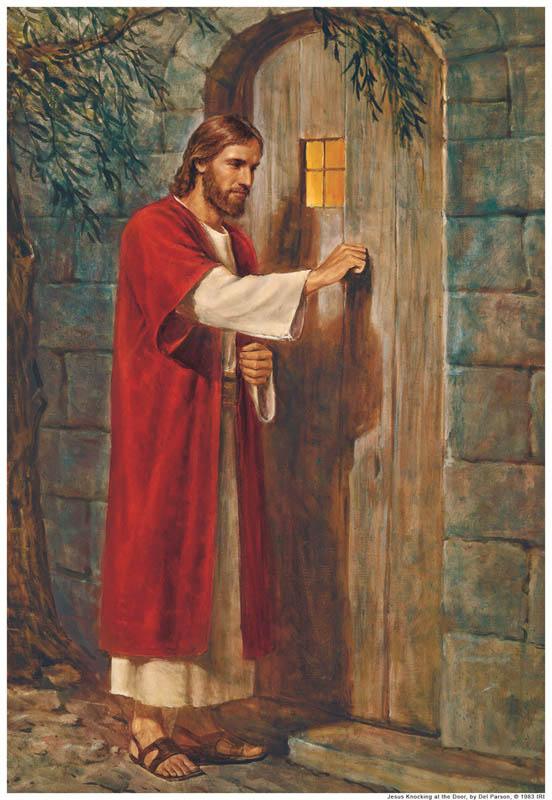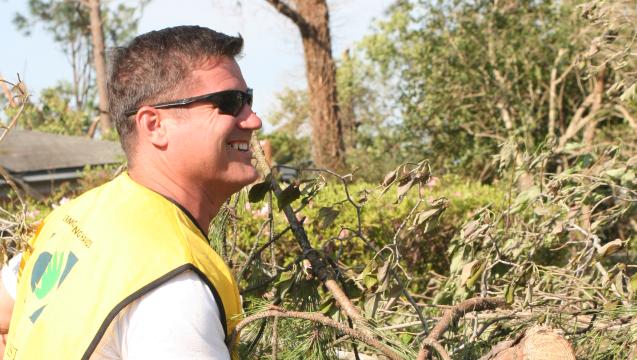This article contains many quotes from religious leaders and scriptures. Following the links in the credits will take you to the complete reference, where you can learn more on this eternally significant topic.
The atonement was made for everyone, but perhaps most importantly, it was made for you personally. If only one person had needed the atonement, Jesus Christ would have accepted that responsibility. The sins he took on were not consolidated. He experienced every sin individually, and so the atonement was for you because Jesus loves you that much.
“His Atonement does indeed cover the world and all people from the beginning to the end. Let us not forget, however, that in its comprehensiveness and completeness it is also intensely personal and uniquely crafted to fit perfectly and address perfectly each of our own individual circumstances. The Father and the Son know each of us better than we know ourselves and have prepared an Atonement for us that is fully congruent with our needs, challenges, and possibilities,” (Cecil O. Samuelson Jr., “What Does the Atonement Mean to You?,” Liahona, Apr 2009, 14–19.)
No one could force Jesus into the Garden or onto the cross. The atonement worked only because it was a voluntary sacrifice. No one will ever give you a greater gift than Jesus gave you, and He gave it for no other reason than because He loves you. Do you believe you are that loveable? When we comprehend how much we’re loved by Jesus Christ and God, who know us better than anyone else—they know all our faults and weaknesses and they still love us that much—we can finally begin to understand we really are special. We are children of God and have a divine parentage. If They, being perfect and knowing everything, know we’re that important, we must be important and special. God is never wrong.
To take advantage of the full measure of the atonement of Jesus Christ we have to continually learn and grow, and that growing process will inevitably mean we’ll make mistakes. Because of the atonement, we can repent and return to full standing in God’s eyes. He never stops loving us, no matter how terribly we behave, but like any loving parent, He expects us to make amends for those sins.
For most of us though, the hardest part of true repentance is forgiving ourselves.
“It has always struck me as being sad that those among us who would not think of reprimanding our neighbor, much less a total stranger, for mistakes that have been made or weaknesses that might be evident, will nevertheless be cruel and unforgiving to themselves. When the scriptures say to judge righteously, that means with fairness and compassion and charity. That’s how we must judge ourselves. We need to be patient and forgiving of ourselves, just as we must be patient and forgiving of others.” (The Teachings of Howard W. Hunter, ed. Clyde J. Williams (1997), 34.)
I believe it’s when we start to understand how special we are, that we really are children of God, that we’re able to forgive ourselves. When we love someone we don’t focus on the bad things; we focus on the good and lovingly overlook the faults or forgive the ones we can’t overlook. We need to be as kind to ourselves as we are to others.
D. Chad Richardson, a Mormon leader, said, “We must keep sin in its proper perspective. Satan would convince us that we are defined by our sins. He would have had the repentant W. W. Phelps see himself always as a traitor. He would convince someone who has stolen that he is and always will be a thief.
The Savior, in contrast, would have us understand that we have sins that need to be cleansed, but we are much more than those stains. If I spill ketchup on my shirt, I have a stain. Perhaps it is right in front where everyone can see it. But while I have a stain, I am not the stain. I need to recognize that there is a good deal of my shirt that is clean and white. I believe that God sees the white shirt—the goodness in His children—and offers, through Christ, to remove the stains. If we obsess about the stain, however, it will become who we are in our minds and then in our actions.”
It’s seemingly natural to focus on what is wrong when we do a self-evaluation. What would be different if we focused on what was right? When I was on the speech team in college, we were required, during class presentations, to critique our teammates by first explaining what they did well. We could never give more negatives than we gave positives. No matter how badly we did during practices, we had always done something right. We learned to find it in our teammates and to find it in ourselves, since we were often asked to evaluate ourselves as well.
Dieter F. Uchtdorf, a Mormon apostle, was a pilot prior to his church service. He explains that pilots learn that when making very long flights, particularly across oceans, there is a spot called “the point of safe return.” This is the last spot you can safely turn around and go back to where you started without running out of fuel. Beyond that spot is the “point of no return.” President Uchtdorf explains, “Satan wants us to think that when we have sinned we have gone past a “point of no return”—that it is too late to change our course. In our beautiful but also troubled world, it is a sad reality that this attitude is the source of great sorrow, grief, and distress to families, marriages, and individual lives.
Satan tries to counterfeit the work of God, and by doing this he may deceive many. To make us lose hope, feel miserable like himself, and believe that we are beyond forgiveness, Satan might even misuse words from the scriptures that emphasize the justice of God, in order to imply that there is no mercy “ (Dieter F. Uchtdorf, “Point of Safe Return,” Ensign, May 2007, 99–101.)
President Uchtdorf assures us this is a lie. Jesus’ atonement was perfect and it was big enough and loving enough to cover us. There is no point of no return in God’s plan. He then tells us we can know for ourselves we’ve been forgiven:
“Once we have truly repented, Christ will take away the burden of guilt for our sins. We can know for ourselves that we have been forgiven and made clean. The Holy Ghost will verify this to us; He is the Sanctifier. No other testimony of forgiveness can be greater….
And He said, “Come unto me, all ye that labour and are heavy laden, and I will give you rest” (Matthew 11:28)….
And He declared, “Behold, he who has repented of his sins, the same is forgiven, and I, the Lord, remember them no more” (D&C 58:42).
Satan will try to make us believe that our sins are not forgiven because we can remember them. Satan is a liar; he tries to blur our vision and lead us away from the path of repentance and forgiveness. God did not promise that we would not remember our sins. Remembering will help us avoid making the same mistakes again. But if we stay true and faithful, the memory of our sins will be softened over time. This will be part of the needed healing and sanctification process. Alma testified that after he cried out to Jesus for mercy, he could still remember his sins, but the memory of his sins no longer distressed and tortured him, because he knew he had been forgiven (see Alma 36:17–19).
It is our responsibility to avoid anything that would bring back old sinful memories. When we continue to have a “broken heart and a contrite spirit” (3 Nephi 12:19), we may trust that God will “remember [our sins] no more.””
We have an obligation to learn to trust God and to trust the Savior. They gave us this gift and we must choose to accept it. Once we’ve made that choice, the fullness of the gift is ours and this is the only way we can be healed from the pains of our past mistakes.
How can we do this? We must get to know God and Jesus in a very personal way. We do this by reading their words, praying, listening with our hearts after we pray, and doing what He’s asked us to do. When we hear religious teachings, we must ask God to tell us if they are true, and then trust His answers to our hearts. To find complete peace, we have to know what God wants us to know and we must invite Him to help us partake of all the gifts He is offering us.
About Terrie Lynn Bittner
The late Terrie Lynn Bittner—beloved wife, mother, grandmother, and friend—was the author of two homeschooling books and numerous articles, including several that appeared in Latter-day Saint magazines. She became a member of the Church at the age of 17 and began sharing her faith online in 1992.







I love this article mainly because I have been searching for an authoritative comment that indeed, Jesus Christ would have atoned for one. But I am still looking for that phrase and concept by a leader of the church. Can anyone help me out?